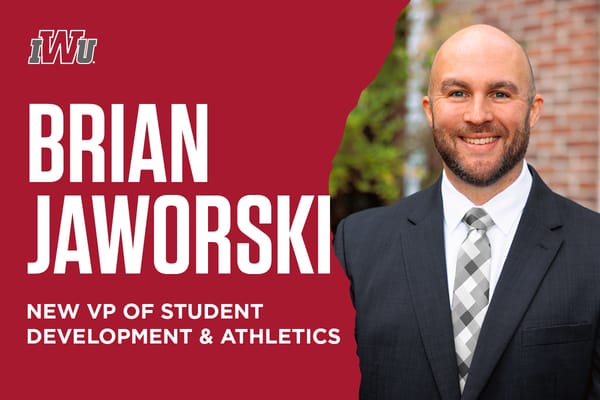The Top 12 Skills Every Allied Health Professional Needs
Allied health professionals make up 60% of the healthcare workforce, playing a crucial role in patient care, diagnosis, and treatment. This guide outlines 12 essential skills—from communication to technical expertise—needed to thrive in this dynamic and rewarding field.

Allied health professionals are vital to the healthcare system, bridging the gap between patient care and a wide array of specialized services. Representing approximately 60% of the healthcare workforce, they play a critical role in prevention, diagnosis, and treatment while collaborating with other healthcare professionals to enhance patient outcomes.
If you're considering a career in allied health or wanting to refine your skills in this field, developing the right abilities is key to your success. This guide explores the top 12 skills required to excel as an allied health professional, with a focus on practical application and broader career benefits.
What is Allied Healthcare?
The definition of allied health highlights professionals who deliver healthcare services that are not typically provided by doctors or nurses but are essential in treating diseases and disorders, managing chronic conditions, and promoting public health.
Allied health professionals are trained individuals who work in collaboration with doctors, registered nurses, and physician assistants to provide essential healthcare services. They specialize in areas such as rehabilitation, dietary and nutrition services, diagnostic imaging, speech language therapy, and health systems management. Examples of allied health roles include occupational therapists, physical therapists, athletic trainers, dental hygienists, and medical laboratory scientists.
These professionals work across diverse healthcare settings, including hospitals, private practices, community health clinics, medically underserved areas, and specialized healthcare facilities. The demand for allied health services is growing, particularly as chronic diseases and the complexity of healthcare needs increase.
Benefits of a Career in Allied Health
A career in allied health offers numerous benefits, making it a highly attractive allied health career. These careers not only provide job growth and stability but also offer flexibility in education and training, and high levels of career satisfaction and impact.
Job Growth and Stability
Allied health careers are among the fastest-growing professions. According to the U.S. Bureau of Labor Statistics, roles such as diagnostic medical sonographers, respiratory therapists, and medical assistants are expected to see substantial growth through 2036. The increasing prevalence of chronic disease, aging populations, and advancements in medical technology continue to drive demand for allied health professionals.
Career Flexibility
Educational requirements for allied health professions vary, depending on the role. You can start a career as a pharmacy technician or dental assistant with short certification programs. Occupations like physical therapists or dietitians, however, require advanced degrees and specialized training. This versatility makes allied health jobs accessible to people with different educational and financial backgrounds.
Purpose and Impact
A career in allied health provides a strong sense of purpose. Whether assisting in cancer diagnosis, offering direct patient care, or educating communities on health promotion, allied health professionals know their work has a meaningful impact on others.
Top 12 Skills Every Allied Health Professional Needs
To excel in the allied health field, professionals must possess a unique blend of technical expertise and interpersonal skills. Below are the most critical personal skills and technical skills to develop:
1. Communication Skills
A healthcare professional must communicate effectively with patients, families, and colleagues. Clear verbal and written communication ensures treatment plans are well-understood, helping foster trust. For example, speech language pathologists need advanced communication skills to give patients the tools to overcome communication disorders.
2. Technical Proficiency
Allied health professionals must be adept at operating medical technologies. Nuclear medicine technologists, for instance, rely on highly specialized equipment to scan and treat diseases like cancer. Staying up to date with new tools and devices is essential for providing the best care possible.
3. Critical Thinking and Problem-Solving
Healthcare situations often require quick, informed decisions. Whether a clinical laboratory technologist is interpreting test results or a dietitian is creating plans for specific diseases and disorders dietary needs, critical thinking supports improved care.
4. Empathy and Compassion
Patients in healthcare settings often face physical and emotional challenges. Allied health professionals working in sensitive fields like occupational therapy or mental health services must demonstrate empathy to build strong patient relationships and improve health outcomes.
5. Attention to Detail
Precision is critical in allied health roles. Whether recording patient data, administering treatments, or performing diagnostics, attention to detail ensures high-quality care and minimizes risks.
6. Physical Stamina
Many allied health roles, such as physical therapists or dental hygienists, require long hours of standing, lifting, or repetitive motions. Maintaining physical endurance helps professionals perform their duties while maintaining patient safety.
7. Adaptability
Healthcare environments can present various challenges, from changing patient conditions to new protocols. Professionals who can pivot quickly, like respiratory therapists responding to emergencies, thrive under pressure.
8. Teamwork
Collaboration is at the heart of health systems management. Allied health professionals coordinate with doctors, nurses, and administrators to provide seamless patient care. Effective teamwork elevates the entire healthcare system.
9. Organizational Skills
Balancing multiple patients and administrative responsibilities requires strong organizational abilities. Health educators or community health workers, for example, often manage several outreach projects at once.
10. Continuous Learning
The healthcare industry is always evolving. Advancements in scientific principles and medical techniques mean allied health professionals, from athletic trainers to pharmacy technicians, need ongoing education and training to stay effective and competitive.
11. Time Management
Efficient scheduling and task prioritization help allied health professionals balance clinical responsibilities, documentation, and continuing education—ensuring quality care without burnout.
12. Self-Care and Resilience
High emotional and physical demands in allied health make self-care essential. Professionals who proactively manage their well-being can avoid burnout and provide more sustainable, compassionate care.
Top Allied Health Career Paths to Consider
Looking to explore the allied health professions? Here are some notable careers and their unique contributions to healthcare services:
- Physical Therapy: Restores mobility and relieves pain for patients recovering from injuries.
- Athletic Training: Supports injury prevention, assessment, and rehabilitation for athletes and active individuals across various settings.
- Occupational Therapy: Helps patients regain vital skills for daily life.
- Medical Laboratory Science: Conducts diagnostic tests for disease identification.
- Nutrition Services: Creates personalized dietary plans that align with patient health needs.
- Diagnostic Medical Sonography: Uses imaging technology to detect and monitor health conditions.
Driving the Future of Healthcare
Allied health professionals will continue to play a pivotal role in shaping the future of healthcare. By developing the 12 skills outlined here, allied health professionals can thrive in their roles and continue to advance their healthcare systems, contributing to better patient experiences and outcomes. Their diverse skill sets, specialized knowledge, and ability to adapt to various healthcare settings make them invaluable to healthcare providers and patients alike.
If you're considering an allied health profession, check out Indiana Wesleyan University's online bachelor's in health science! With a focus on continuous learning and a commitment to patient care, the opportunities in allied health careers are limitless. Learn more today!




